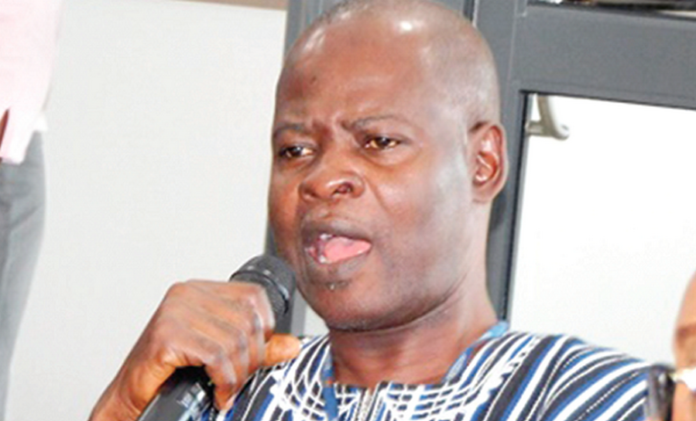
Dr Steve Manteaw, chairman of the Public Interest and Accountability Committee (PIAC), has accused the transaction adviser in the Power Distribution Services (PDS) debacle, International Finance Corporation (IFC) of being engrossed in conflict of interest in the transaction.
He said the IFC also failed to ensure transparency and due diligence in the transaction.
Speaking on Corruption Watch (CW) show on Adom FM, Dr Manteaw said, among the many issues his group, Coalition of Stakeholders on the Electricity Company of Ghana Concession Arrangement (COSECA), identified when negotiations were still ongoing was the fact that the IFC had interest in some of the companies that were bidding for the concession.
He said COSECA engaged the IFC about its findings and the institution admitted but refused to recuse itself as an adviser of a deal it had interest in with the excuse that recusing itself would deprive Ghana of having a credible adviser in a transaction of such magnitude.
He said the IFC, hence, stayed on as an adviser but failed to advise the government and stakeholders on the proper guarantee for the deal.
“Government alone can’t take the flak for this fraudulent deal as the entire deal was superintended upon by a transaction adviser,” he added.
“IFC is an arm of the World Bank Group, but it is a commercial and private arm of the World Bank Group, they work for profit; why did they fail to ensure that the guarantee was genuine?” he asked.
According to him, the IFC, Millennium Development Authority and the Government of Ghana should be held responsible for the entire mess as the Government of Ghana owns the property so had to ensure that a satisfactory investigation was done in the entire transaction.
Govt rejected good counsel
According to Dr Manteaw, COSECA was of the view from the initial stage of the intended privatisation of ECG that there were issues, but after realising it was a done deal, the group took interest in scrutinising the entire transaction and offered advice and proposals to the government and sometimes directly to the president to ensure Ghana had a good deal.
He added that the interest was premised on the fact that similar transactions had happened in Ghana in the past, one of which was the privatisation of the Ghana Water Company Limited which at the end of the day had to return to State management.
Dr Manteaw revealed that though the Government of Ghana initially accepted the proposal of his group to give Ghana majority shares in the PDS deal, which eventually resulted in the review from 80/20 to 51/49%, it failed to put into consideration all other contributions they tried to make following a pledged injecting of over $500m capital into the industry by the United States.
According to him, they later became alarmed at the way the 51% Ghanaian ownership offer was made as it didn’t have elements of transparency, hence they suggested that it would be appropriate for the State to hand over the 51% shares to the Association of Ghana Industries.
“This association is an already existing group of Ghanaian entrepreneurs. We suggested that the shares are handed over to this association for them to form a special purpose vehicle in a form of a company for their members to purchase the shares for the association to own and manage the 51% PDS shares,” he added.
Government, however, rejected the proposal.
He said “each company had to invest about $100 million each every year for the next five years. It was a huge amount for a Ghanaian owned company to raise every year. How many Ghanaian companies can raise $100 million a year?
“That was why we proposed that this is awarded to a uniformed group which government ignored. Meanwhile, the letter from the Finance Minister to the chief negotiator, Akoto Ampaw, which is in circulation, is now requesting that the companies which were given the 51% shares now form a uniformed entity.
“This directive should have happened before the award of the concession. It was for the same reason we proposed that the 51% be owned by the Association of Ghana Industries to promote transparency from the beginning. That would have been better and transparent than to wait for the concession to be awarded before asking the shareholders to go in search of just any company.
“This directive from the Finance Minister means that no investigation to ascertain the capability for the job has been done about whichever company would be brought on board.
“We are shocked to get to know that companies that were eventually given the 51% presented fraudulent guarantee which would have been our source of getting the capital requirement. If these things were made pre-award requirement, we may not have given the shares to these individuals because you will be required to meet the needed requirement before the award. That would have ensured that due diligence was done, but it didn’t happen that way.”
Source: Adomonline.com | Francisca Emefa Enchill | Corruption Watch, Ghana
